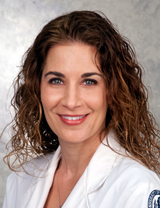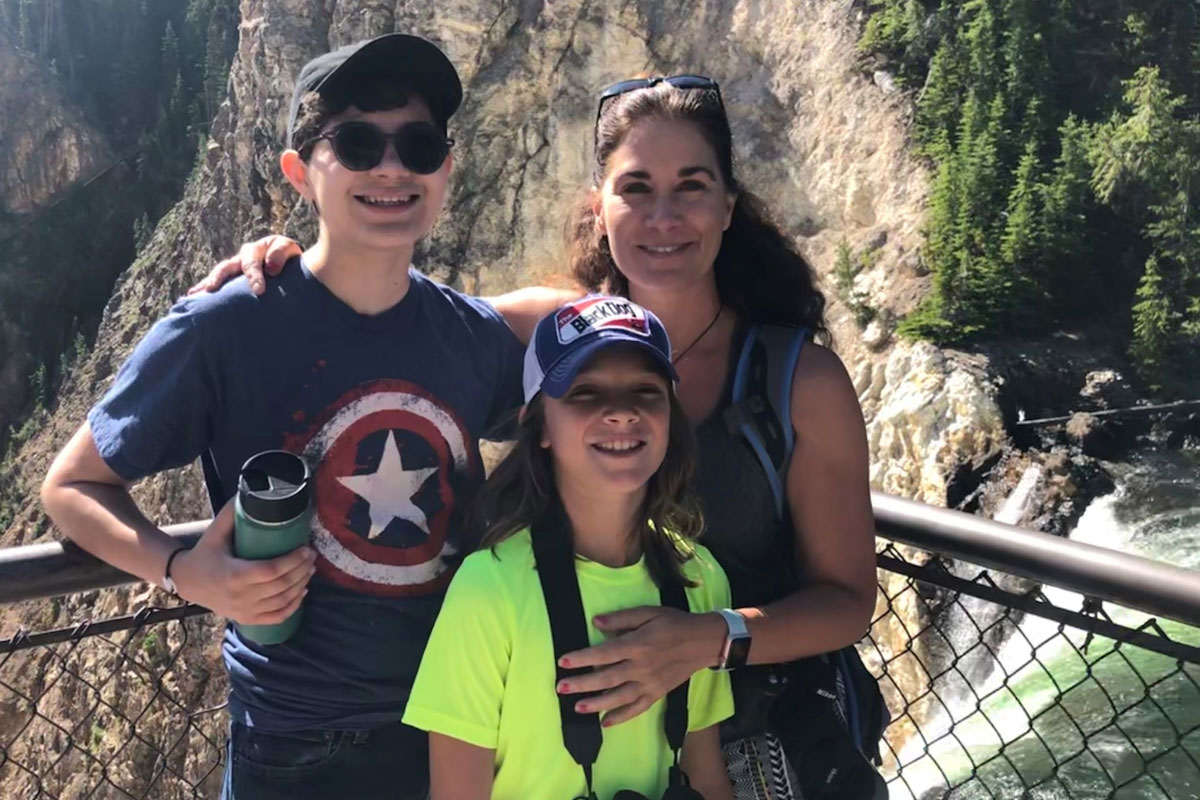Graduation season bubbles up many emotions for students and their families. As a teacher, researcher and mom of two boys, Dr. Rebecca Andrews is feeling this season very differently this year. A self-proclaimed short-distance runner, Andrews is training for the UConn Health Half Marathon and finding the mental challenge of long distance running a great outlet.
“I can go on a run, think about things in the day I need to work through. But once I get to a certain distance, running also helps me put those thoughts to the side and just focus on the challenge of the run.”
Andrews, a primary care physician at UConn Health, also serves as associate program director of UConn’s internal medicine residency program and in a typical year, celebrates between 30-40 residents completing the program in the spring. This year, she is trying to arrange a drive-in graduation for residents to be recognized by name and hear their faculty cheer them on as they end their special training,
“It’s such a huge achievement, the residents put off their “real life” for so long to go through this special training preparing them to provide such an important social service to the general population,” Andrews says. “It’s one of my favorite times of the year – we know where they’re going to start the next phase of their life and we’re extremely proud.”
The season is especially bittersweet with COVID-19 impacts for her family as her son celebrates his senior year and graduation from high school.
“It’s surreal to see COVID-19 patients struggle at work, and then come home and feel so distraught about my son not having prom, graduation or any of the iconic senior experiences like senior prank or senior skip day,” she says. “I’ve watched him and his friends wallow; they deserved that time. There have been times in history when kids had to grow a little faster, we know it will be OK in the end, but it’s so hard for them to miss what they earned.”
Andrews ran track in high school and felt comfortable with short-distance running. She feels long-distance was and still is mentally challenging but comes with a great secondary benefit for stress relief.

“I love my job, but it can be difficult to share bad news with patients,” she says. “I don’t want to take that bad news to the next room and the next patient or take it home to my family. People process that in a lot of different ways. I can go on a run, think about things in the day I need to work through. But once I get to a certain distance, running also helps me put those thoughts to the side and just focus on the challenge of the run.”
In addition to teaching as part of the internal medicine residency program and seeing patients in primary care, Andrews also researches chronic pain care. The last couple months have changed her day-to-day work experiences, which she anticipates will have long-term impact.
“One great thing about UConn Health is that the doctors who see patients have a role in administration and in making decisions,” she says. “It makes my job special and a little different than in many other places I could work. It means I can affect health care for the betterment of all patients, not just my own.”
The public immediately thinks of medical needs of patients who have COVID-19, but many roles for medical professionals are now behind the scenes. Some of Andrews’ leadership duties were re-assigned and her skills were needed in outpatient care and in primary care to make sure the most vulnerable patients weren’t getting lost in the situation of the pandemic.
Andrews and her running partners at the hospital started training in February for the UConn Health Half Marathon, her first 13.1-mile race. Like many runners taking on distance goals, she adjusted to run in cold and rain when she needed to put in the miles, and she forced herself to make the time in her schedule.
“I do a lot of counseling with patients on what they should be doing in their life,” she says. “I’ve made bets with my patients, like I’ll learn to golf if they quit smoking. But I realized I didn’t have a set exercise plan that was intense enough for true health reasons and for me. I was active, walking the dog or coaching soccer, but running helps me follow my own advice for patients. Being a mom and being busy wasn’t a reason not to take care of myself.”
What used to be 5 miles for de-stress is becoming 15 miles a week; the more stress she feels, the faster she runs. And the competitive nature of running to accomplish personal goals works well for many doctors.
“As doctors, we learn to be competitive to be the best we can for ourselves,” Andrews says. “In running, I set goals for myself. It’s about me being better one day to the next.”
More information/registration for the UConn Health Half Marathon, 10K & 5K virtual events, running through June 7, is available at www.hartfordmarathon.com/uconn-health-half-marathon-10k-5k-on-iron-horse-virtual/.
This article was written by Beth Shluger and first appeared on the Hartford Marathon Foundation blog.



